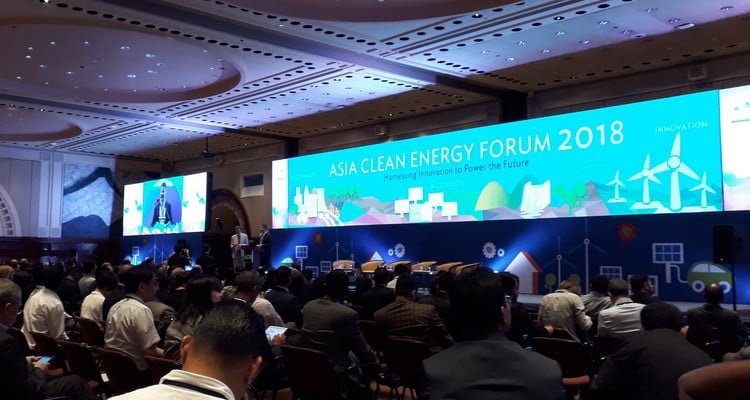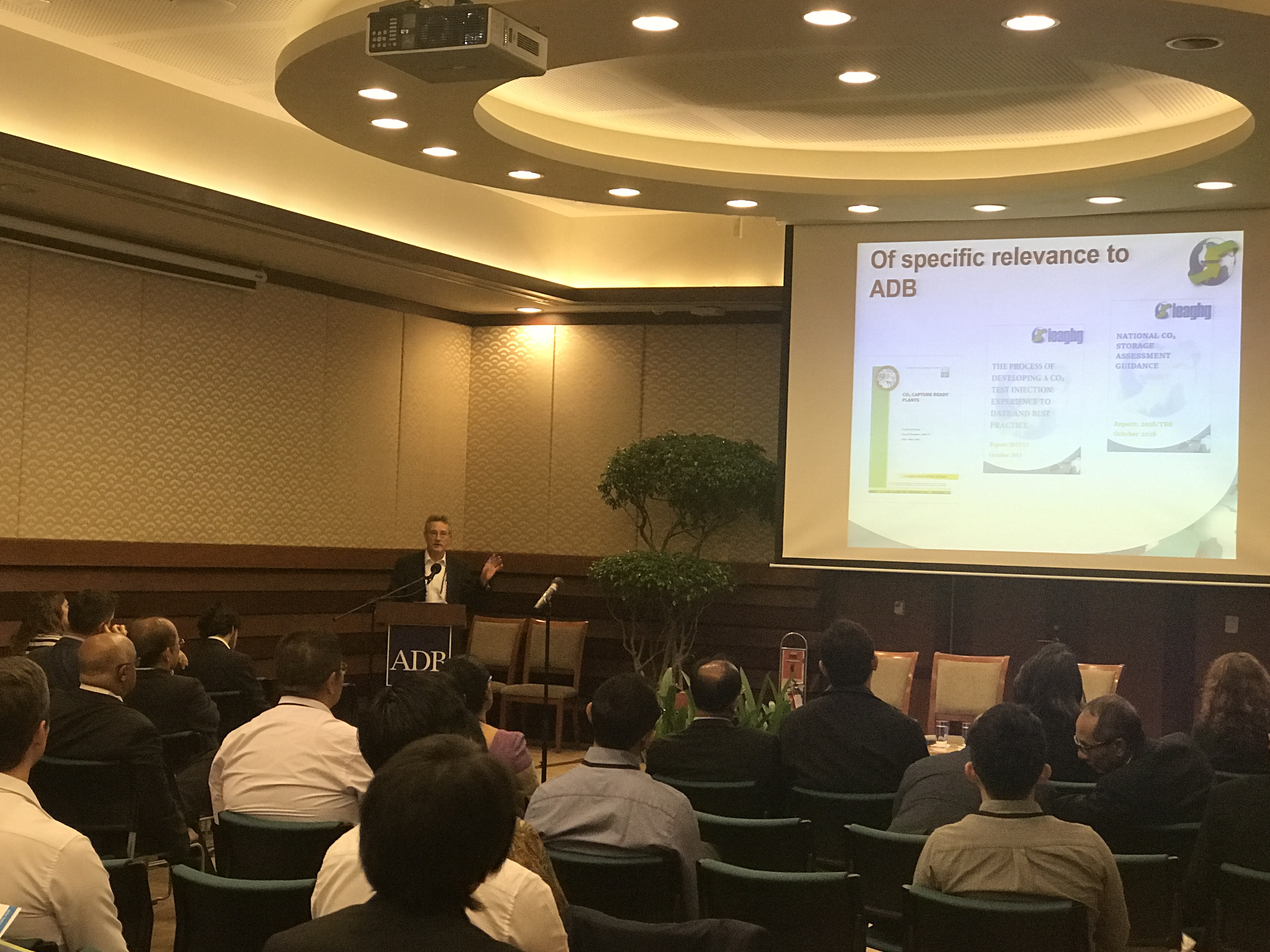
The ACEF, an initiative of the Asian Development Bank (ADB), is a forum for sharing best practices in policy, technology, and finance to meet Asia’s climate and energy challenges. The ACEF attracted approximately 1000 attendees from 50 countries.
CCUS Centres of Excellence
At the first CCUS workshop on June 8th, we had the opportunity to hear from the growing number of CCUS Centres of Excellence (CoE) that are establishing around the world. These groups – who were brought together by ADB and UK’s Department for Business, Energy & Industrial Strategy – shared their strengths, best practices, and expertise. The ADB is currently providing funding to several of the CoEs in the Asian region. ADB’s David Elzinga kicked off the workshop by welcoming everyone and encouraging active dialogue. “CCS is an important technology at ADB,” he said.
Updates were provided by the Indonesia CoE, the Shanghai CoE, and the Guandong CoE, South African Centre SANEDI, and the Shanghai CoE who described their planned work on capture readiness for a power plant and on an industrial plant.
It was evident that the CoEs have an important role to play in each of their countries. In the discussion that followed the updates, one of the suggestions was that these CoEs are well position to inform their national governments on the role of CCUS for their nation’s mitigation plans, specifically when they update their Nationally Determined Contributions (NDCs) per their commitments in the United Nations Framework Convention on Climate Change (UNFCCC’s) Paris Agreement.
The sharing of experiences and best practices at the workshop was indispensable to the participants. There was discussion about the value of bringing the world’s CCUS CoEs together on an annual basis. Mike Monea of the International CCS Knowledge Centre offered to spearhead this initiative along with support from IEAGHG. This idea seemed popular, so watch this space!
Deep Dive Workshop on CCUS in the Asian Region
The second workshop was intended as a “Deep Dive Workshop on CCUS”. Held on June 8th and well attended, it’s objectives were to understand recent developments from practitioners and to open a dialogue between stakeholders in Asia to promote CCUS.
Presentations ranged from donor countries activities to developments in developing countries. Of most interest to myself were updates given from NTPC of India and by LEMIGAS of Indonesia.
Carbon Clean Solutions of the UK highlighted their several pilot capture projects including one in India.
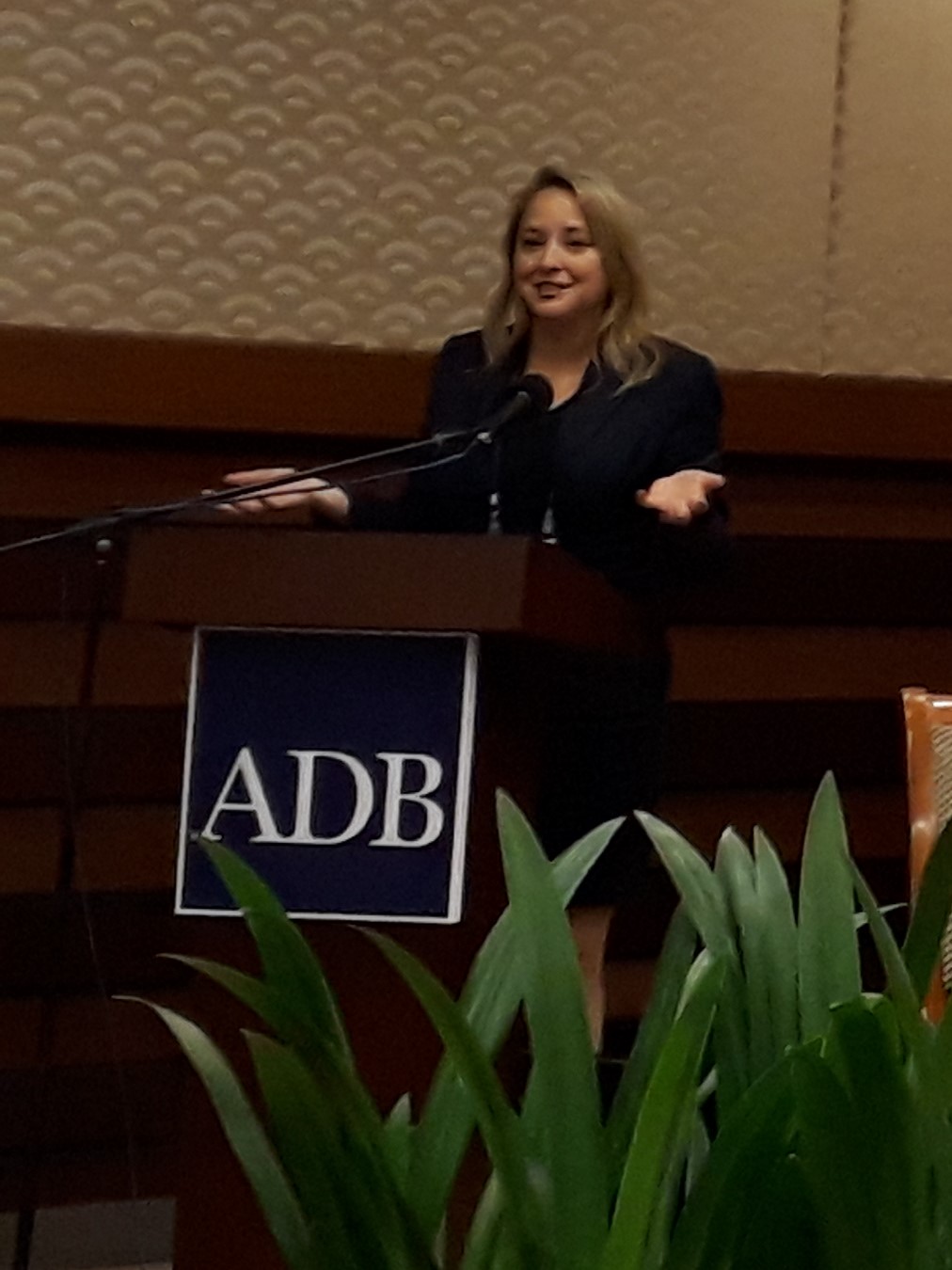
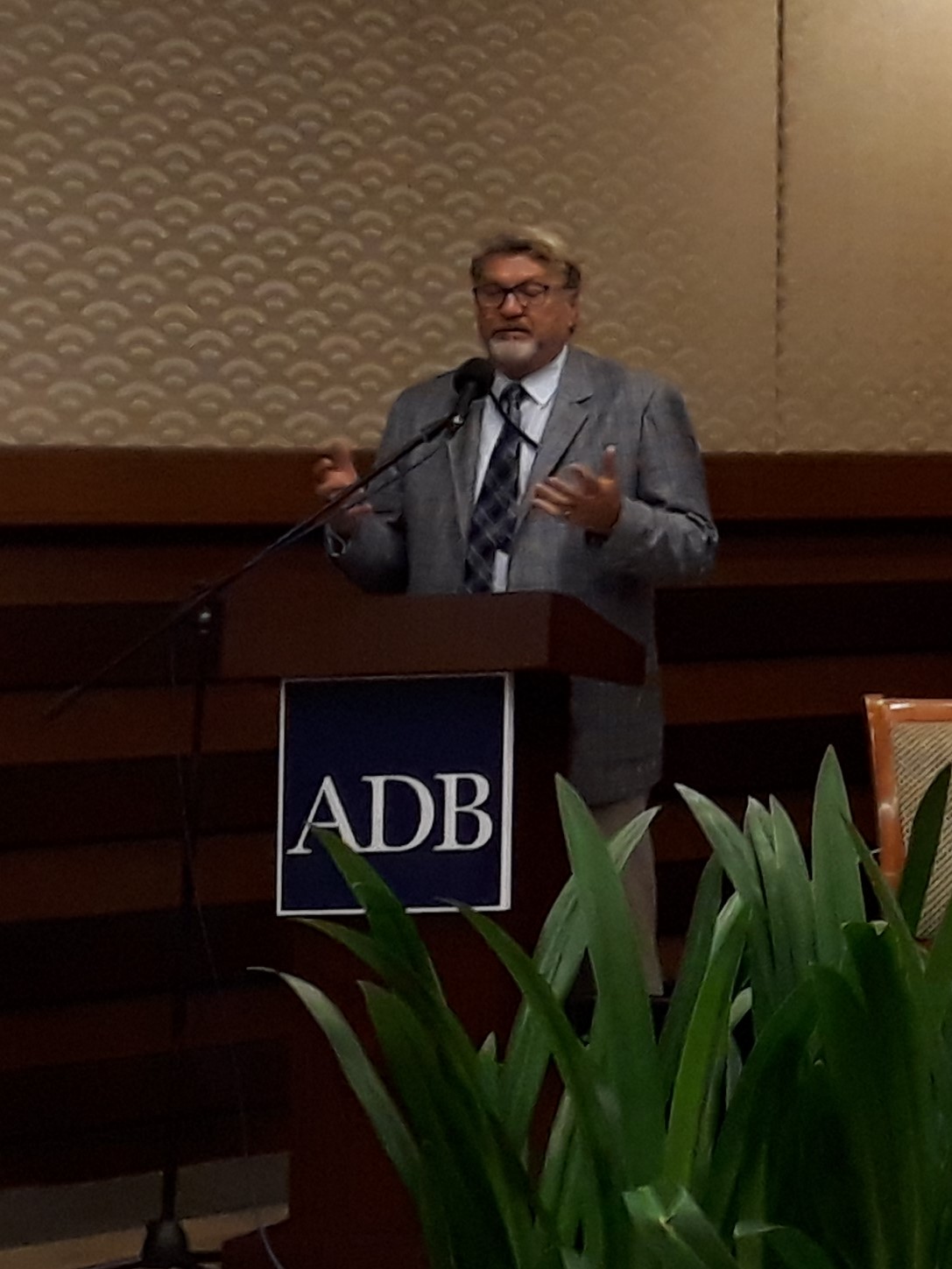
In addition to the learnings from the BD3, JX Nippon shared some of their learnings from the Petra Nova Project, based in Texas USA, to round it off nicely. [As a side-note, we plan to have a Discussion Panel at GHGT-14 (in Melbourne Australia, October 21-26, 2018) led by the International CCS Knowledge Centre to discuss learnings from large scale projects, including BD3 and Petra Nova.]
During the Deep Dive, I presented the aspects of IEAGHG’s technical programme that are the most relevant to the ADB (click here for my presentation) and its CCUS-active countries, such as the CCS Summer School which has been hosted twice recently by the International CCS Knowledge Centre and hopes to be again in 2019.
I was also asked to participate in two panels to give reflections on the ways forward for Asian countries from a global perspective.
In terms of accelerating CCUS in Asia, the ADB is already doing great work with its CoEs, expanding its countries on CCUS, and engaging with the International CCS Knowledge Centre. As an example, ADB brought an Asian delegation to the International CCS Knowledge Centre’s CCS Symposium in October 2017.
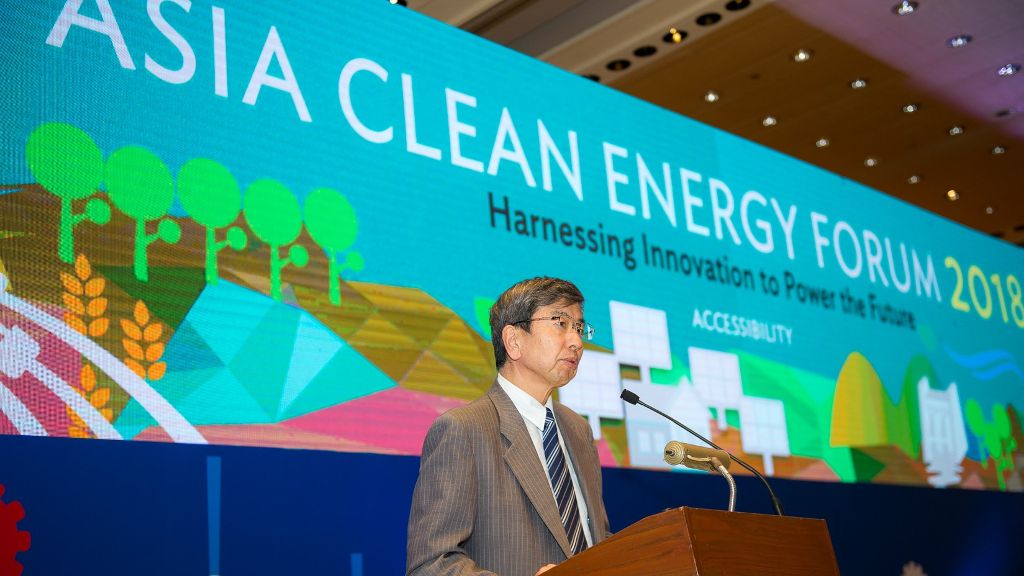
CCUS is being recognized for its important role. This was underscored in the ACEF concluding plenary where Takehiko Nakao, President of ADB said, “New technologies … [including] carbon capture and storage …. have huge potentials to accelerate the clean energy transformation.” (read full speech here). It was good to see ADB including CCUS to be along with the other low carbon technologies at the Forum – for all are needed for this transformation.
——–
Tim Dixon is a Board Member of the International CCS Knowledge Centre
